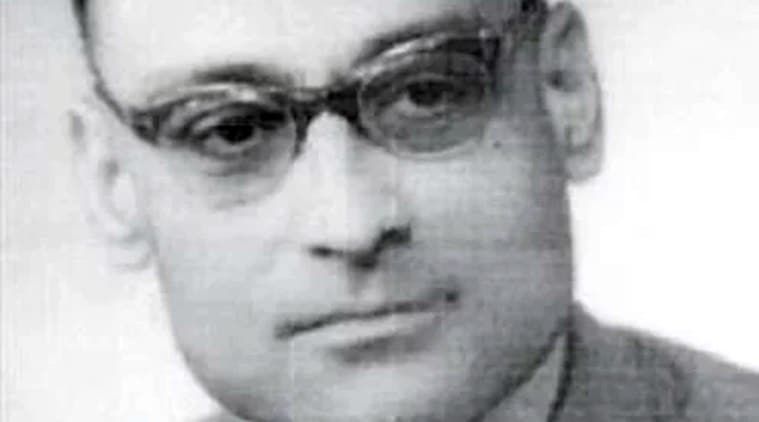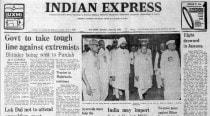RN Kao, RAW’s first chief, laid the foundations of Indian espionage
Kao founded the Research and Analysis Wing (R&AW) in 1968 and headed it till 1977. Within a short time after setting it up, he was able to recruit a large number of persons with special skills, not available through normal bureaucratic channels, with great results.
 RN Kao
RN Kao
Union Home Minister Amit Shah is delivering the R N Kao memorial lecture today. How do we remember Kao, who was one of the most powerful intelligence chiefs in India’s history? He founded a new organisation, gave it a totally new work culture and broke the back of the biggest security threat to our nation. Yet Kao, whose birth centenary was last year, had no shade of arrogance in his behaviour and was a warm-hearted and kind man behind the veneer of an extraordinary aura and trappings of power.
When India won Independence in 1947, it did not have an intelligence organisation to meet the security requirements of a nation which was born in conflicts and bloodshed. The Intelligence Bureau (IB) that India inherited from the British catered only for imperial interests both in internal and external spheres. The British chose the Indian police for carrying out both functions as it suited the colonial administration to have a coercive arm for executing these priorities. This arrangement did not suit a nascent nation like India, which was emerging as a role model for other newly-independent countries.
This responsibility came on the shoulders of the legendary Bhola Nath Mullik, the second director of IB (1950-64). Mullik says it was Jawaharlal Nehru who guided the IB in the art of fixing intelligence priorities by regularly addressing its officers. He gave them a wider perspective of how intelligence, especially foreign intelligence, not only protected nascent democratic countries but also allowed them to gain influence in the game of power politics. Kao was groomed by Mullik in undertaking these external intelligence tasks.
Kao’s first overseas assignment was helping the Hong Kong police in investigating one of the earliest cases of aviation terrorism. On April 11, 1955 Air India’s “Kashmir Princess” to Jakarta, carrying delegates for the Afro-Asian Conference in Bandung, crashed into the sea. China’s Prime Minister Zhou Enlai, who was to have been on the flight, escaped since he cancelled his trip at the last moment. Investigation revealed suspected Taiwanese involvement through an airport cleaner, who planted American made MK-7 detonator. Years later, a French source revealed that Zhou, who was the founder of Chinese intelligence, was alerted in advance by his sources.
The 1971 Indo-Pak war which split Pakistan was the high point of Kao’s career. However, the task was not easy as Kao had to face bureaucratic hurdles at every stage in 1968 to create a separate foreign intelligence unit. He used to tell me that apart from old colleagues’ obstructive tactics, he also had to overcome a scheming deputy secretary in the Cabinet Secretariat, who would whittle down all higher level decisions on financial, administrative and operational issues.
Kao founded the Research and Analysis Wing (R&AW) in 1968 and headed it till 1977. Within a short time after setting it up, he was able to recruit a large number of persons with special skills, not available through normal bureaucratic channels, with great results. He hired a retired army officer whose unit could intercept advance intelligence on Pakistan’s pre-emptive air attack on December 3, 1971. The satellite monitoring facility set up by his part-time aide, who was working full-time in another technical department, came in handy even later during the Pakistan’s clandestine nuclear bomb project period.
Kao would not agree to record his significant role in creating Bangladesh. Former minister Jairam Ramesh has done a great service in unearthing the historical record of the 1971 operations while writing his seminal biography of P N Haksar (PNH). He could find from PNH’s archives the latter’s proposal to the prime minister to make Kao the coordinator of a high-level committee on deciding aid to Bangladesh freedom fighters. Indira Gandhi issued the order on March 2, 1971, constituting this committee designating Kao as the convenor.
Kao was at his best while interacting with foreign intelligence chiefs with whom he cultivated personal bonds. Volumes could be written on his silent contribution in building up high-level relationship to protect and expand our strategic interests, achieving what normal diplomacy could not. Mossad chief Nahum Admoni has told me that he was an admirer of Kao. I was a witness to Kao’s personal friendship with the then French external intelligence chief, Le Conte Alexandre de Marenches, the colourful aristocrat, nick named “Porthos” because of his size, who held the longest tenure of directorship of the French external service SDECE, now called DGSE.
It was Marenches-Kao-Nematollah Nassiri (of Iran’s Savak) who conceived the idea of “Trilateral cooperation” between France, India and the Shah’s Iran in the mid Seventies to carve out an independent role, to offset the growing US-USSR rivalry in the Indian Ocean. Unfortunately, this secret project could not last as Kao demitted office in 1977, Nassiri was killed by the Khomeni regime in 1979 and Marenches was sacked by President Mitterand.
When Indira Gandhi returned to power, she made Kao the senior security advisor in 1981. Kao was the first to conclude that it was not enough that intelligence is collected through different agencies but that somebody should coordinate and arbitrate the output before presenting it to the policy makers. He thus set up the foundations of a future National Security Council system by establishing a “Policy and Research Staff” (PARS) to function as a think tank and policy adviser to the government. In doing this, he practised what Henry Kissinger said much later: “The Security Adviser’s contact with media and foreign diplomats should be to the minimum. Conduct of foreign policy should be left to the Secretary of State”.
This article first appeared in the August 20 print edition under the title ‘Spy who came in from the cold’. The writer is a former Special Secretary, Cabinet Secretariat








































